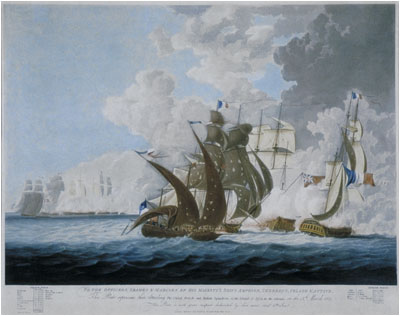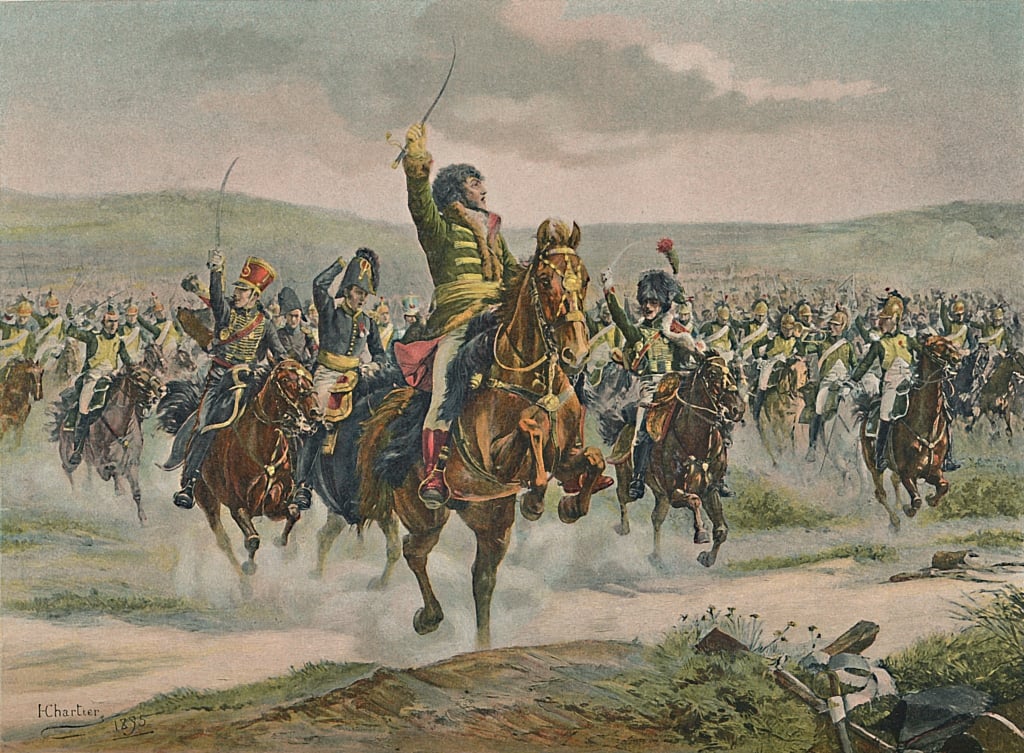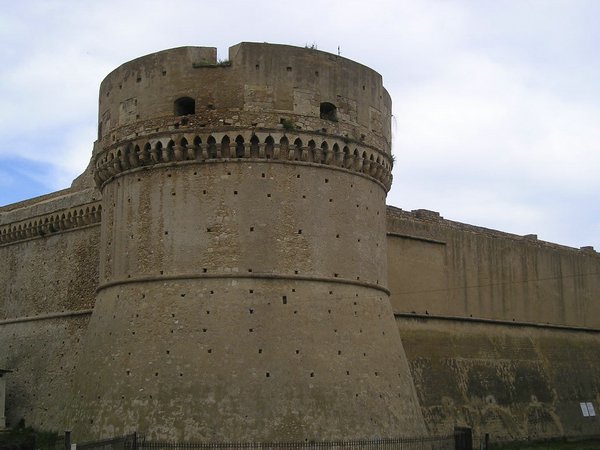|
HMS Volage (1807)
HMS ''Volage'' was a sixth-rate post-ship of the Royal Navy. She served during the Napoleonic War, capturing four privateers and participating in the Battle of Lissa (1811). She was sold in 1818. Her new owners renamed her ''Rochester'' and she served in a commercial capacity for another 12 years, first sailing between England and India, and then making two voyages to the South Seas as a whaler. She was last listed in ''Lloyd's List'' in 1831. Naval career ''Volage'' was built by Richard Chapman, of Bideford, who launched her on 23 March 1807. She sailed to the Mediterranean in October 1807, soon after commissioning in May 1807 under Captain Philip Rosenhagen. On 6 November she was off Galita Island when she captured the French cutter ''Succès'', of ten guns and 59 men, under the command of ''lieutenant de vaisseau'' Bourdé Villehuet. According to her captain, ''Succès'' had sailed from Toulon three days earlier on a cruise; Rosenhagen suspected that she was actually carry ... [...More Info...] [...Related Items...] OR: [Wikipedia] [Google] [Baidu] |
United Kingdom Of Great Britain And Ireland
The United Kingdom of Great Britain and Ireland was a sovereign state in the British Isles that existed between 1801 and 1922, when it included all of Ireland. It was established by the Acts of Union 1800, which merged the Kingdom of Great Britain and the Kingdom of Ireland into a unified state. The establishment of the Irish Free State in 1922 led to the remainder later being renamed the United Kingdom of Great Britain and Northern Ireland in 1927. The United Kingdom, having financed the European coalition that defeated France during the Napoleonic Wars, developed a large Royal Navy that enabled the British Empire to become the foremost world power for the next century. For nearly a century from the final defeat of Napoleon following the Battle of Waterloo to the outbreak of World War I, Britain was almost continuously at peace with Great Powers. The most notable exception was the Crimean War with the Russian Empire, in which actual hostilities were relatively ... [...More Info...] [...Related Items...] OR: [Wikipedia] [Google] [Baidu] |
Mediterranean
The Mediterranean Sea is a sea connected to the Atlantic Ocean, surrounded by the Mediterranean Basin and almost completely enclosed by land: on the north by Western and Southern Europe and Anatolia, on the south by North Africa, and on the east by the Levant. The Sea has played a central role in the history of Western civilization. Geological evidence indicates that around 5.9 million years ago, the Mediterranean was cut off from the Atlantic and was partly or completely desiccated over a period of some 600,000 years during the Messinian salinity crisis before being refilled by the Zanclean flood about 5.3 million years ago. The Mediterranean Sea covers an area of about , representing 0.7% of the global ocean surface, but its connection to the Atlantic via the Strait of Gibraltar—the narrow strait that connects the Atlantic Ocean to the Mediterranean Sea and separates the Iberian Peninsula in Europe from Morocco in Africa—is only wide. The Mediterr ... [...More Info...] [...Related Items...] OR: [Wikipedia] [Google] [Baidu] |
Cartel (ship)
Cartel ships, in international law, are ships employed on humanitarian voyages, in particular, to carry communications or prisoners between belligerents. They fly distinctive flags, including a flag of truce. Traditionally, they were unarmed but for a single gun retained for signalling purposes.Cartel flags, Joe McMillan, 14 December 2001, https://www.crwflags.com/fotw/flags/xf-crtl.html Cartel ships were used on the basis of intergovernmental agreements, which were called 'cartels' between the 17th and the 19th century. A ship serving as a cartel was not subject to seizure or capture. However, if it engaged in commerce or warlike acts such as carrying official dispatches or messengers, it lost its character of inviolability and would then be subject to capture. The cartel protection extended to the return voyage. Furthermore, the prisoners being taken for exchange were under an obligation not to engage in hostilities towards their captors. If they were to capture the cartel ship, ... [...More Info...] [...Related Items...] OR: [Wikipedia] [Google] [Baidu] |
Evan Nepean
Sir Evan Nepean, 1st Baronet, PC FRS (9 July 1752 – 2 October 1822)Sparrow (n.d.) was a British politician and colonial administrator. He was the first of the Nepean Baronets. Family Nepean was born at St. Stephens near Saltash, Cornwall, the second of three sons of Nicholas Nepean, an innkeeper, and his second wife, Margaret Jones. His father was Cornish and his mother was from South Wales. The name "Nepean" is thought to come from the village of Nanpean ("the head of the valley"), in Cornwall. Nepean married Margaret Skinner, the only daughter of Capt. William Skinner, on 6 June 1782 at the Garrison Church at Greenwich. They had eight children, including Sir Molyneux Hyde Nepean, 2nd Bt., and Maj.-Gen. William Nepean, whose daughter Anna Maria Nepean married General Sir William Parke. Their youngest child, Rev. Canon Evan Nepean, became the Canon of Westminster and a Chaplain in Ordinary to Queen Victoria. His son Charles was a Middlesex county cricketer who also playe ... [...More Info...] [...Related Items...] OR: [Wikipedia] [Google] [Baidu] |
Donald Mackay (Royal Navy Officer)
Vice Admiral Donald Hugh Mackay (31 December 1780 – 26 March 1850) was a Royal Navy officer who became Commander-in-Chief, Queenstown. Naval career Mackay joined to Royal Navy in January 1792. He took part in the expedition to Ostend under Rear Admiral Sir Home Popham to destroy the sluice gates of the Bruges canal in May 1798 during the French Revolutionary Wars. He also took part in the Anglo-Russian invasion of Holland in Autumn 1799. He became commanding officer of the sixth-rate HMS ''Volage''‚ commanding officer of the fifth-rate HMS ''Malacca'' and then commanding officer of the third-rate HMS ''Minden'', all between 1811 and 1816, on the East Indies Station The East Indies Station was a formation and command of the British Royal Navy. Created in 1744 by the Admiralty, it was under the command of the Commander-in-Chief, East Indies. Even in official documents, the term ''East Indies Station'' was .... He went on to be Commander-in-Chief, Queenstown in 1848 ... [...More Info...] [...Related Items...] OR: [Wikipedia] [Google] [Baidu] |
Lord Byron
George Gordon Byron, 6th Baron Byron (22 January 1788 – 19 April 1824), known simply as Lord Byron, was an English romantic poet and Peerage of the United Kingdom, peer. He was one of the leading figures of the Romantic movement, and has been regarded as among the greatest of English poets. Among his best-known works are the lengthy Narrative poem, narratives ''Don Juan (poem), Don Juan'' and ''Childe Harold's Pilgrimage''; many of his shorter lyrics in ''Hebrew Melodies'' also became popular. Byron was educated at Trinity College, Cambridge, later traveling extensively across Europe to places such as Italy, where he lived for seven years in Venice, Ravenna, and Pisa after he was forced to flee England due to lynching threats. During his stay in Italy, he frequently visited his friend and fellow poet Percy Bysshe Shelley. Later in life Byron joined the Greek War of Independence fighting the Ottoman Empire and died leading a campaign during that war, for which Greeks rev ... [...More Info...] [...Related Items...] OR: [Wikipedia] [Google] [Baidu] |
Adriatic
The Adriatic Sea () is a body of water separating the Italian Peninsula from the Balkan Peninsula. The Adriatic is the northernmost arm of the Mediterranean Sea, extending from the Strait of Otranto (where it connects to the Ionian Sea) to the northwest and the Po Valley. The countries with coasts on the Adriatic are Albania, Bosnia and Herzegovina, Croatia, Italy, Montenegro, and Slovenia. The Adriatic contains more than 1,300 islands, mostly located along the Croatian part of its eastern coast. It is divided into three basins, the northern being the shallowest and the southern being the deepest, with a maximum depth of . The Otranto Sill, an underwater ridge, is located at the border between the Adriatic and Ionian Seas. The prevailing currents flow counterclockwise from the Strait of Otranto, along the eastern coast and back to the strait along the western (Italian) coast. Tidal movements in the Adriatic are slight, although larger amplitudes are known to occur occasion ... [...More Info...] [...Related Items...] OR: [Wikipedia] [Google] [Baidu] |
Phipps Hornby
Admiral Sir Phipps Hornby, (27 April 1785 – 19 March 1867) was a prominent and experienced Royal Navy officer of the nineteenth century. Hornby served on frigates throughout most of his wartime experience, which included witnessing the Nore Mutiny first hand aged 12 in 1797. Later, commanding his own sixth-rate in 1811, Hornby played a vital role in the British victory at the Battle of Lissa. At Lissa a British squadron under William Hoste overwhelmed a French force more than twice their own strength, ''Volage'' combating a much larger ship alone for several minutes and taking numerous casualties, including Hornby, who was wounded. Later in life, Hornby accepted a succession of home and seagoing positions to ensure the promotion prospects for his son in the navy as well as to support his close allies in Parliament under the Earl of Derby, to whom he was related. These positions included a period in command of the Pacific Fleet and later a role as one of the Lords of the A ... [...More Info...] [...Related Items...] OR: [Wikipedia] [Google] [Baidu] |
Joachim Murat
Joachim Murat ( , also , ; it, Gioacchino Murati; 25 March 1767 – 13 October 1815) was a French military commander and statesman who served during the French Revolutionary Wars and Napoleonic Wars. Under the French Empire he received the military titles of Marshal of the Empire and Admiral of France. He was the 1st Prince Murat, Grand Duke of Berg from 1806 to 1808 and King of Naples as Joachim-Napoleon ( it, Gioacchino Napoleone, links=no) from 1808 to 1815. He was the brother-in-law of Napoleon Bonaparte. Early life Murat was born on 25 March 1767 in La Bastide-Fortunière (later renamed Labastide-Murat after him), in Guyenne (the present-day French department of Lot). His father was Pierre Murat-Jordy (d. 27 July 1799), an affluent yeoman, innkeeper, postmaster and Roman Catholic churchwarden. His mother was Jeanne Loubières (1722 – 11 March 1806), the daughter of Pierre Loubières and his wife Jeanne Viellescazes. Murat's father, Pierre Murat-Jordy, was ... [...More Info...] [...Related Items...] OR: [Wikipedia] [Google] [Baidu] |
Crotone
Crotone (, ; nap, label= Crotonese, Cutrone or ) is a city and ''comune'' in Calabria, Italy. Founded as the Achaean colony of Kroton ( grc, Κρότων or ; la, Crotona) in Magna Graecia, it was known as Cotrone from the Middle Ages until 1928, when its name was changed to the current one. In 1992, it became the capital of the newly established Province of Crotone. , its population was about 65,000. History Croton's ''oikistes'' (founder) was Myscellus, who came from the city of Rhypes in Achaea (ancient region), Achaea in the northern Peloponnese. He established the city in c. 710 BC and it soon became one of the most flourishing cities of Magna Graecia Magna Graecia (, ; , , grc, Μεγάλη Ἑλλάς, ', it, Magna Grecia) was the name given by the Romans to the coastal areas of Southern Italy in the present-day Italian regions of Calabria, Apulia, Basilicata, Campania and Sicily; these re ... with a population between 50,000 and 80,000 around 500 BC. Its inhabi ... [...More Info...] [...Related Items...] OR: [Wikipedia] [Google] [Baidu] |
|


.jpg)



